Alabama politicians react to Supreme Court gay wedding cake ruling
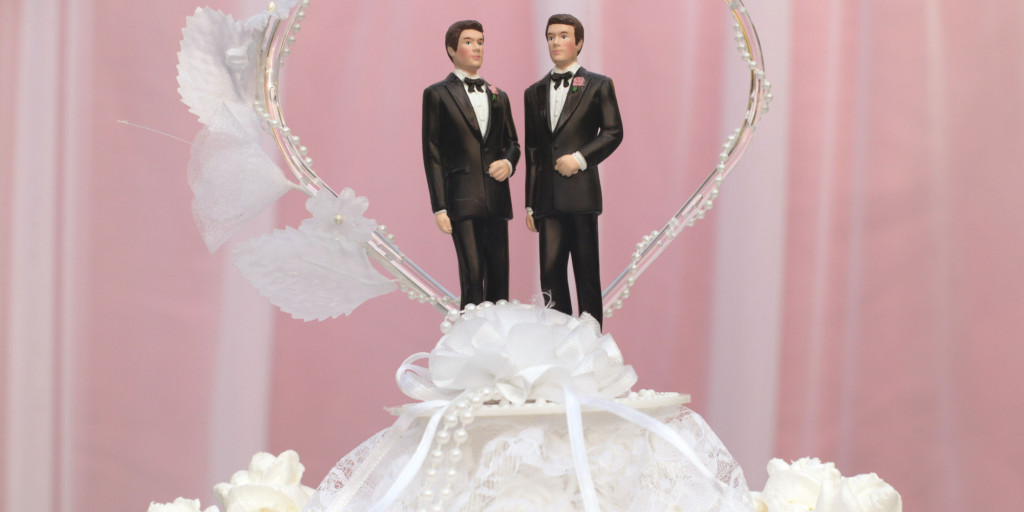
The U.S. Supreme Court narrowly ruled in favor of a Colorado baker who refused to create a wedding cake for a same-sex couple because of a religious objection. The 7-2 ruling found that the Colorado Civil Rights Commission showed hostility toward the baker, Jack Phillips, based on his religious beliefs. Here’s what Alabama politicians are saying about the decision: Alabama Attorney General Steve Marshall: This Supreme Court Decision should send a strong message to activist courts and bureaucrats alike that Americans’ right to religious expression cannot be trampled and the Constitution cannot be ignored. Alabama 1st District U.S. Rep. Bradley Byrne: This an important victory for religious liberty! It is especially notable that it is a 7 to 2 decision. That means even two of the more liberal justices agreed with the decision. Alabama 4th District U.S. Rep. Robert Aderholt: Today’s ruling by the Supreme Court is one where all Americans should be happy. This is not a time that one side should be seen as a winner and the other side as a loser. This is a win for all Americans who believe that freedom of religion is fundamental. One of the main reasons the first people from Europe came to America was for religious freedom. And that is why protecting religious liberty was one of the founding principles of the Bill of Rights. The Bill of Rights makes the United States unique among nations. Even two of the courts liberal members could not sidestep the First Amendment. This ruling was an important first round victory for religious freedom in an ongoing push-back against modern day political correctness.
Supreme Court gives victory to baker who refused to make cake for gay wedding

The U.S. Supreme Court narrowly ruled in favor of a Colorado baker who refused to create a wedding cake for a same-sex couple because of a religious objection. The 7-2 ruling found that the Colorado Civil Rights Commission showed hostility toward the baker, Jack Phillips, based on his religious beliefs. Justice Anthony M. Kennedy, writing for the majority, said the state commission had violated the Constitution’s protection of religious freedom in ruling against Phillips. “The neutral and respectful consideration to which Phillips was entitled was compromised here,” penned Justice Kennedy. “The Civil Rights Commission’s treatment of his case has some elements of a clear and impermissible hostility toward the sincere religious beliefs that motivated his objection.” Justices Ruth Bader Ginsberg and Sonia Sotomayor dissented. This story is breaking and will be updated.
Bill to remove marriage licenses passes Alabama Senate

The Alabama Senate approved a bill on Wednesday to remove marriage licenses and begin a new process under which probate judges would accept affidavits from couples as an official record of marriage. Alabama Senators voted 19-1 for the bill, which will now move to the House of Representatives. Under the legislation, the requirement of a ceremony to honor the marriage would be erased. The cost would be the same as the current cost of marriage licenses in the state. The bill’s sponsor, Atmore-Republican Sen. Greg Albritton said the passing of this bill would remove the state from any role in marriage ceremonies, which he believes will properly separate churches and the state. Similar bills have been proposed in the Alabama legislature since the U.S. Supreme Court legalized gay marriage in 2015. Since then, a number of Alabama probate judges have refused to issue marriage licenses to anyone due to their personal religious objections to gay marriage. Alabama probate judges are not required by the current law to issue marriage license and many judges have used the language in the current law to opt themselves out of issuing the licenses. The bill would take away any judgement by probate judges, making the only requirement for a marriage to be official being to submit the correct documents to the probate judge. The documents required would include an affidavit stating that the spouses are 18 years of age or older, or are at least 16 with parental consent, that they are not currently married, and not related by blood or adoption. Albritton’s bill states that the shift would not alter any other aspects of marriage in Alabama, including: divorce, child custody and child support. Sen. Phil Williams, who was the sole ‘no’ vote, stated he voted in that manner because he “feared the change would water down the meaning of marriage”.
Suspended Chief Justice Roy Moore defends his gay marriage ban memo
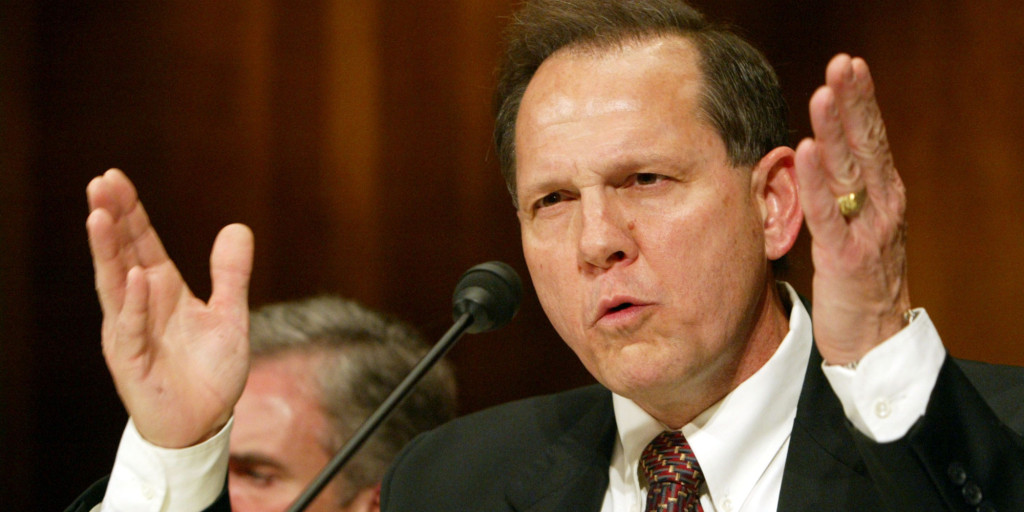
Suspended Alabama Supreme Court Chief Justice Roy Moore is defending his January 2016 memo to probate judges regarding same-sex marriage. Moore submitted an affidavit Tuesday explaining he was not defying the high court’s decision, but seeking to resolve any “confusion” among probate judges because of what he says were lingering questions about the impact of the federal decision. On March 3, 2015, the Alabama Supreme Court ordered probate judges to stop issuing marriage licenses to same-sex couples. Then on June 26, 2015, U.S. Supreme Court legalized gay marriage. “I believe it is time for us to make a decision in this case, one way or the other: to acquiesce in Obergefell and retreat from our March orders or to reject Obergefell and maintain our orders in place,” Moore wrote his fellow justices in September 2015, explaining it would be “very unfair” to leave “probate judges of this state to bear the stress of this battle alone with no guidance from us.” Months later, in January 2016, Moore readdressed the issue, noting the Alabama Supreme Court had not lifted its March 3 ruling prohibiting probate judges from issuing licenses to gay couples. He said it’s up to the state court to decide what to do with that order following the U.S. Supreme Court’s decision. Following his order, an ethics complaint was filed against him and he was immediately suspended from office pending investigation. Moore could be permanently removed from his post, if the state’s Court of Judiciary concludes he violated judicial ethics by urging probate judges to defy the U.S. Supreme Court ruling. Earlier this month, the state’s Judicial Inquiry Committee (JIC) requested the Court of Judiciary to immediately remove Moore for abusing his office and has since accused Moore of playing “semantic gamesmanship” in attempting to justify the January memo. The Court of the Judiciary will hear arguments Aug. 8.
Federal judge permanently bars Alabama from blocking gay marriage
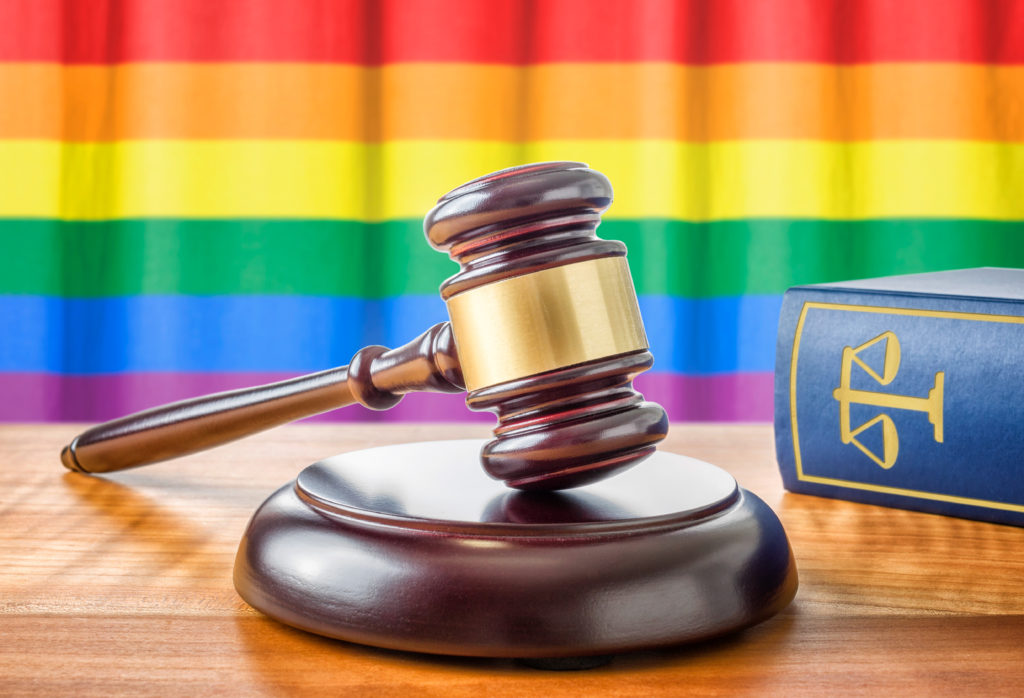
A federal judge is permanently barring Alabama from enforcing state laws to block gay marriage. U.S. District Judge Callie Granade of Mobile issued the order Tuesday in litigation that followed the U.S. Supreme Court decision that effectively legalized same-sex weddings nationwide. The judge writes that the order is needed because state laws against same-sex marriage remain on the books. She says the Alabama Supreme Court’s willingness to issue decisions conflicting with the U.S. Supreme Court demonstrate the need for permanent action. Granade notes that while same-sex opponent Roy Moore is currently suspended from the office of chief justice, other state justices have indicated they believe laws banning gay marriages were constitutional. Most counties already are issuing licenses to same-sex couples, so it’s unclear what impact the ruling will have. Republished with permission of The Associated Press.
SPLC demands Chief Justice Roy Moore’s ouster over new gay marriage ethics complaint

The Southern Poverty Law Center (SPLC) is calling for the removal of Alabama Chief Justice Roy Moore after news that Moore said state probate judges remain under a court order to refuse marriage licenses to gay couples despite a U.S. Supreme Court decision that legalized same-sex marriage over six months ago. The SPLC filed a supplement Wednesday to an ongoing ethics complaint they have against the chief justice. “Chief Justice Roy Moore is once again demonstrating that he is unfit to hold office,” SPLC President Richard Cohen said. “Despite the fact that Alabama probate judges are under a federal court order that bars them from discriminating against same-sex couples seeking marriage licenses, Justice Moore has irresponsibly advised them to do the opposite. You would think after being removed from the bench once before that the chief justice would know better.” The SPLC complaint describes how it thinks Moore’s administrative order issued violates the Alabama Canons of Judicial Ethics, which instruct judges to “respect and comply with the law” and promote “public confidence in the integrity and impartiality of the judiciary.” Following the complaint, the Judicial Inquiry Commission could recommend Moore face ethics charges in the Alabama Court of the Judiciary. That’s nothing new to Moore, who was removed as chief justice 13 years ago after refusing to comply with a federal court order to remove a Ten Commandments monument from the state judicial building in Montgomery. “Just as Chief Justice Moore’s previous refusal to comply with a federal court order disqualified him for judicial office and necessitated his removal from the bench, his advising other judges to violate a federal court order also requires his removal as Chief Justice of this state’s highest court,” the supplement from SPLC states. Moore doesn’t see it that way. He says the Alabama Supreme Court never lifted a March directive to probate judges to refuse licenses to gay couples. “Until further decision by the Alabama Supreme Court, the existing orders of the Alabama Supreme Court that Alabama probate judges have a ministerial duty not to issue any marriage license contrary to the Alabama Sanctity of Marriage Amendment or the Alabama Marriage Protection Act remain in full force and effect,” Moore wrote.
Gay marriage fight named top state news story of 2015

Alabama’s uneven response to court rulings allowing same-sex marriages is the top state news story of 2015. Gay marriage became a reality nationwide this year, but the issue took on special significance in Alabama as officials in a conservative Deep South state grappled with how to respond to court rulings allowing same-sex weddings. Some counties complied with court decisions immediately and issued same-sex marriage licenses, prompting joyous ceremonies on courthouse lawns. Others delayed or quit issuing marriage licenses altogether, forcing both gay and straight couples to go elsewhere to get married. More court battles are possible. Here is a look at Alabama’s Top 10 news stories of 2015 as selected by The Associated Press: GAY MARRIAGE A federal judge in Mobile overrules Alabama’s ban on gay marriage and the U.S. Supreme Court then legalizes same-sex marriage nationally, decisions that spark both celebrations and opposition across the state. The fallout from the rulings is Alabama’s No. 1 news story of 2015, and the reverberation could continue into 2016 as gay marriage supporters consider whether to sue counties that quit issuing marriage licenses altogether rather than grant any to same-sex couples. HARPER LEE NOVEL Author Harper Lee of Monroeville releases her second novel, “Go Set a Watchman,” in July, topping best-seller lists. Reviews are mixed for “Watchman,” which was written in 1957 and depicts fictional lawyer Atticus Finch as a racist rather than the noble lawyer of her classic “To Kill a Mockingbird.” A state elder abuse probe is closed after determining the 89-year-old Lee wanted to publish the book. BUDGET CRISIS Two Special Sessions are required before the Republican-controlled Legislature agrees to $1.7 billion state operating budget that includes both spending cuts and tax increases to plug a $200 million gap. POLICE CONFRONTATION Madison police Officer Eric Parker is arrested on state and federal charges after his videotaped takedown of Indian national Sureshbhai Patel, a grandfather, in a suburban neighborhood. Two federal trials end in hung juries, but prosecutors say they want a third trial. BENTLEY DIVORCE First lady Dianne Bentley unexpectedly files for divorce from Gov. Robert Bentley citing an “irretrievable breakdown” of their marriage of 50 years. The case, filed in Tuscaloosa the same day the couple made a joint appearance, is sealed and then settled within weeks. DEATH PENALTY With executions still on hold because of a shortage of drugs needed for lethal injections, three prisoners once sentenced to death — Anthony Ray Hinton, William Ziegler and Montez Spradley — are released from prison after claiming they were wrongly convicted. A fourth death row inmate claiming innocence dies of cancer while fighting his conviction. RUN TO DEATH In Etowah County, Joyce Hardin Garrard is convicted of capital murder and sentenced to life without parole in the running death of her 9-year-old granddaughter, Savannah Hardin. Prosecutors claimed the child was forced to run for hours as punishment for a lie about candy. OBAMA VISIT President Barack Obama is joined on stage by former President George W. Bush in Selma during the 50th anniversary commemoration of the “Bloody Sunday” confrontation where voting rights demonstrators were beaten while attempting to march to Montgomery. POLARIS FACTORY Polaris Industries says it is planning an ATV manufacturing plant that will bring as many as 2,000 jobs to north Alabama. Production is scheduled to begin in 2016 at the 600,000-square-foot plant, located in Limestone County. WINTER WEATHER A record winter storm dumps a foot of snow on north Alabama in February, leaving roads coated with an icy slush that complicates travel. The storm comes only weeks after an arctic blast that sent temperatures plunging and broke records dating to the 1880s as far south as Mobile. Republished with permission of the Associated Press.
Supreme Court blocks Alabama court order in lesbian adoption case
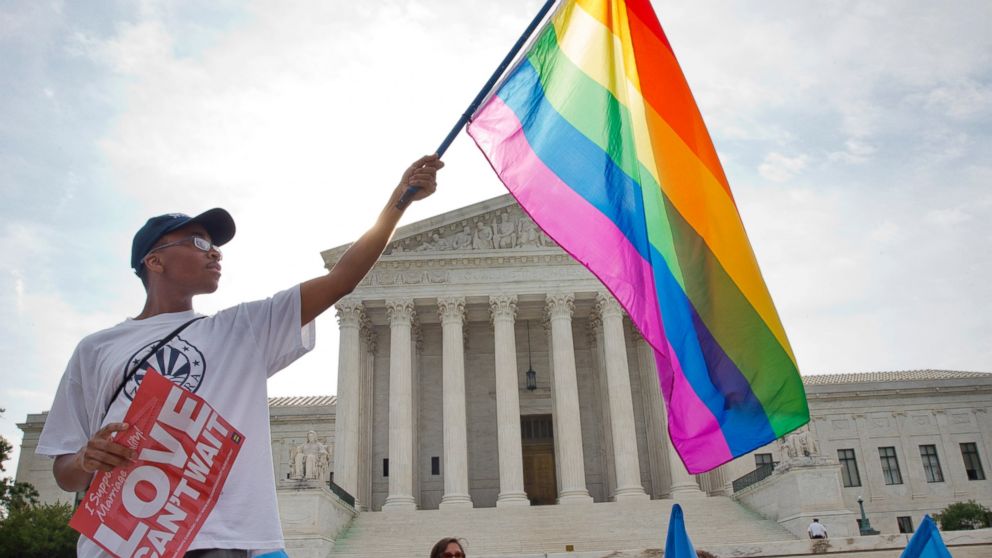
The United States Supreme Court on Monday sided with a lesbian mother who wants to see her adopted children, blocking, at least temporarily, an Alabama court’s order that declared the adoption invalid. The justices issued an order in a case that puts on display legal challenges facing gay and lesbian parents even after the Supreme Court decided that same-sex couples have the right to marry. The case involves a soured relationship between two women, and the three children they raised until the breakup. While they were together, a Georgia court in 2007 approved the woman’s adoption of the children to whom her partner gave birth during their 16-year-relationship. After the couple split, the children’s birth mother contested regular visits between the children and her former partner. In September, Alabama’s highest court refused to recognize the other woman as a parent, saying the adoption they obtained in Georgia was not valid and that the Georgia court was wrong under that state’s adoption laws to grant it. On Monday, the U.S. Supreme Court set aside the Alabama decision as the justices decide whether to hear the woman’s appeal. The noncustodial parent, known in court filings by her initials, V.L., said in a statement issued through her lawyer that she was overjoyed at the prospect of seeing her children again. “I adopted my children more than eight years ago to be sure that I could always be there to protect them. This terrible Alabama decision has hurt my family and will hurt so many other families if it is not corrected,” she said. Her ex-partner fought her visitation, saying the couple lived in Alabama but rented a home in Georgia only because they believed the court there to be friendlier to adoption petitions by gay couples. Alabama justices ruled that the Georgia adoption law didn’t allow a, “non-spouse to adopt a child without first terminating the parental rights of the current parents.” The Alabama Supreme Court earlier this year directed probate judges to refuse marriage licenses to gay couples even though a federal judge ruled the state’s ban on gay marriage was unconstitutional. The directive brought a stop to the weddings until the U.S. Supreme Court said gay and lesbian people have a fundamental right to marry. Republished with permission of the Associated Press.
2 more Alabama counties to issue same-sex marriage licenses

Two more Alabama counties say they will issue wedding licenses following the U.S. Supreme Court’s decision legalizing same-sex marriage nationwide. Both Houston and Henry counties have refused to issue any licenses because of gay marriage. But the Dothan Eagle reports that probate judges in both counties say they will now issue marriage licenses to anyone. The change came at the end of a 25-day window in which the U.S. Supreme Court could have reconsidered its decision. Henry County Probate Judge Patrick Davenport says his office will resume issuing licenses to anyone on Wednesday. Conservative groups are asking the Alabama Supreme Court to follow anti-slavery precedents from the 1850s and resist gay marriage. Most Alabama counties already are issuing marriage licenses to anyone, gay or straight. Republished with permission of The Associated Press.
More Alabama counties issuing same-sex marriage licenses

Additional Alabama counties are issuing marriage licenses to same-sex couples as some opposition to the U.S. Supreme Court decision that legalized gay marriage nationwide fades away. Several more counties in the state on Monday said they’d begun issuing marriage licenses. The reversals come more than a week after the high court’s landmark ruling that declared same-sex couples have a constitutional right to marry. Escambia, Randolph and Coosa were among the latest to begin issuing licenses after halting for days. Last week Henry County Probate Judge David Money said he expected to begin issuing marriage licenses to all couples on Tuesday. Other counties including Pike, Geneva, Houston and Washington have stopped issuing marriage licenses altogether. Republished with permission of The Associated Press.
Federal judge: Alabama counties must allow gay marriage

A federal judge says Alabama counties must abide by court decisions allowing gay marriage. U.S. District Judge Callie Granade issued an order Wednesday updating a previous ruling in favor of same-sex marriage in Alabama. Granade says state probate judges can’t discriminate against gay couples because the U.S. Supreme Court has ruled gay marriage is legal everywhere. But her order doesn’t affect counties that have stopped issuing all marriage licenses. The judge had put previous decisions on hold to allow time for the justices to rule. Granade’s order came at the request of groups representing gay couples across Alabama. Many Alabama counties still aren’t issuing same-sex marriage licenses despite the Supreme Court decision. The Alabama Supreme Court has muddied the issue by granting time for gay marriage opponents to voice their opinion. Republished with permission of the Associated Press.
Katherine Robertson: Reflections on freedom as Independence Day approaches
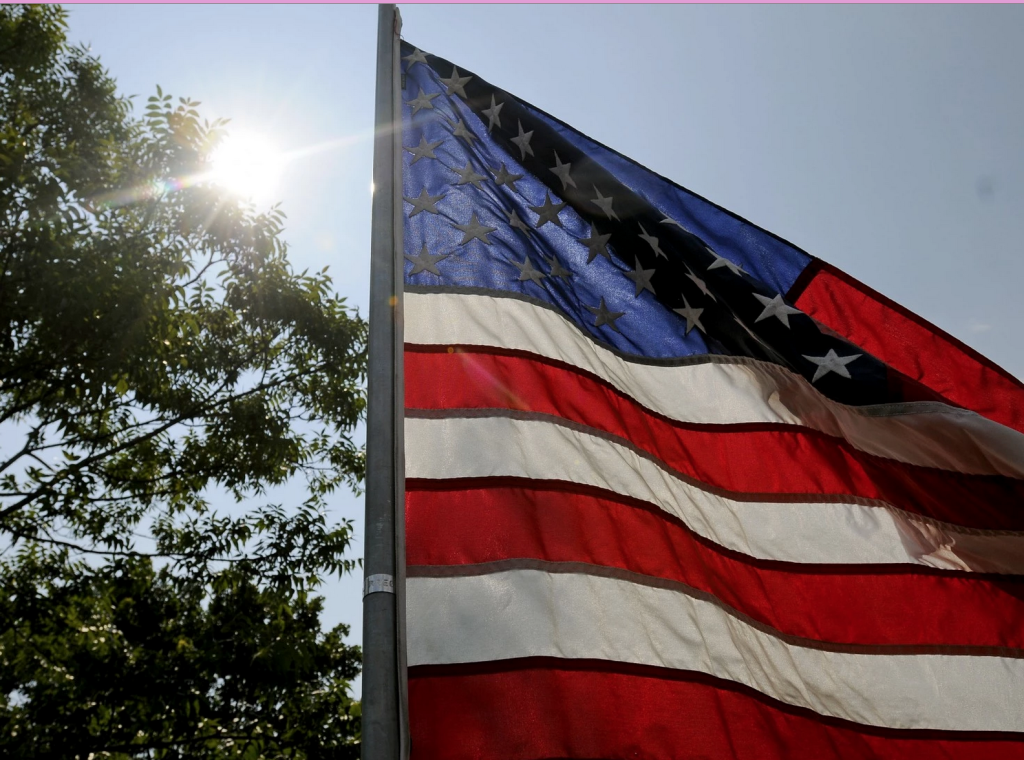
Raised to love my country and our flag, and because it’s reserved for time with my family, the Fourth of July is a day that I look forward to from the very first signs of summer. For me, at least, I sense that this year will somewhat bittersweet. When we celebrate America’s independence, we necessarily celebrate freedom — unprecedented and unmatched by any other nation. For the first time in my life, I fear that my own freedom might actually be at stake. As the left tirelessly labels as hateful anyone expressing the slightest disappointment over the Court’s ruling on marriage, any objective constitutional scholar has to admit that this decision goes well beyond the simple act of requiring that marriage licenses be issued to any couple who seeks them. Rather, it tips the scales of justice against one of our nation’s foremost freedoms: the free exercise of religion. As you have likely read and heard numerous times over the weekend, the court has designated the right to marry as one that is “fundamental.” Assigning that status to same-sex marriage places it on equal footing with the free exercise of religion, a freedom enumerated in the First Amendment. Such a designation for same-sex marriage has vast implications, of course, for anyone with a religious objection to it. Precedent dictates that government action may limit a fundamental right if the action promotes a compelling or overriding state interest. Sadly, the court made no effort in last week’s decision to assure the protection of religious liberty in the face of this new state interest in same-sex marriage. The majority writes, “[m]any who deem same-sex marriage to be wrong reach that conclusion based on decent and honorable religious or philosophical premises, and neither they nor their beliefs are disparaged here. But (emphasis mine) when that sincere, personal opposition becomes enacted law and public policy, the necessary consequence is to put the imprimatur of the State itself on an exclusion that soon demeans or stigmatizes those whose own liberty is then denied.” In other words, if exercising your First Amendment rights, including that of religion, is interpreted as demeaning the fundamental right to a same-sex marriage, then your religious right will be deemed inferior. To that end, Justice Samuel Alito did not mince words: “[The decision] will be used to vilify Americans who are unwilling to assent to the new orthodoxy. In the courts of its opinion, the majority compares traditional marriage laws to laws that denied equal treatment for African-Americans and women. The implications of this analogy will be exploited by those who are determined to stamp out every vestige of dissent.” Justice Clarence Thomas similarly opined, “[i]t appears all but inevitable that the two [rights] will come into conflict, particularly as individuals and churches are confronted with demands to participate in and endorse [same-sex marriages]. The majority appears unmoved by that inevitably.” This new, very real threat to our previously taken-for-granted freedoms will have one of two effects on those who revere the First Amendment. Some may decide that the current is just too strong, the left’s talking points too convincing, and that a strict adherence to the Constitution or our own religious beliefs is no longer feasible. On the other hand, and hopefully more likely, others will awaken from complacency. They will choose to be more intentional about who they allow to influence their stances, more confident in their convictions, and more thoughtful in how they go about expressing them. As renowned legal scholar, Judge Robert Bork, wrote in 1993, “[i]n our current culture wars, perhaps the most important of the virtues for conservatives is fortitude — the courage to take stands that are not immediately popular, the courage to ignore the opinion polls. Otherwise, we will never change the polls. That is what true conservatism means, or it means nothing.” This Independence Day, let’s reflect on the fortitude of the generations before us who fought for our freedoms and refuse to be the apathetic generation that lets them slip away. Katherine Robertson is vice president for the Alabama Policy Institute (API), a nonprofit research and education organization dedicated to the preservation of free markets, limited government and strong families.


